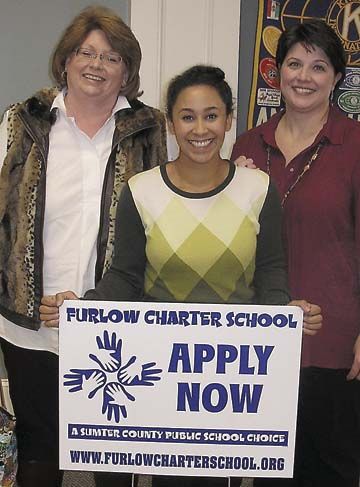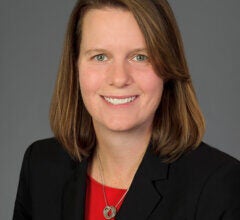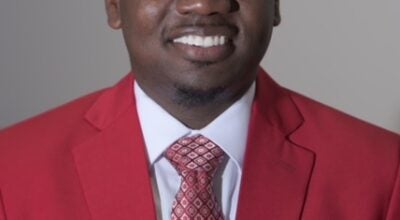Furlow Charter School enrollment continues
Published 9:00 am Saturday, January 31, 2015
AMERICUS — The deadline for enrolling at Furlow Charter School is approaching and there is still some confusion about what the charter school is and what it will offer.
Liz Kuipers, a member of the board of Furlow Charter School (FCS), recently spoke to the Americus Kiwanis Club to better educate the public on the school.
FCS is a part of the Sumter County School System; it is free and open to all residents of Sumter County. Starting in August, there will be grades K-8, adding a grade each consecutive year. The school will have project-based learning, service learning, fine arts education for all grades and Spanish for all grades.
Student applications will be accepted through Feb. 14. The school can enroll 406 students this year and if applications outnumber the slots, a lottery (random selection) will be held at 5 p.m. Feb. 21 in the First United Methodist Church social hall. Applications can be printed at www.FurlowCharterSchool.org. Applications can be placed in the drop box outside the main office of FCS, in the Cherokee School building at 300 Cherokee St., or mailed to FCS, P.O. Box 186, Americus GA 31709. Office hours for FCS are Feb. 2, 9 and 12.
Once a student is enrolled, they will be in and will not have to re-enroll every year. Children of board members get in automatically and children of teachers will also, starting next year. Siblings in families are also included.
Kuipers was introduced to the Kiwanis Club by Elaina Lockhart, who is also involved with FCS.
Kuipers explained the school’s vision: to enrich the community by empowering students to achieve academic success. Its mission is to offer an innovative approach to public education by encouraging critical thinking and multidisciplinary learning through and active and engaging education.
“We’re committed to fostering cultural awareness, social responsibility and academic excellence through family and community involvement in the development of life-long learners,” she said.
“We’re enormously grateful and excited about” being approved by the Sumter County Board of Education to be part of the district, she said. The FCS has undergone significant review on the state level.
“We have been interviewed and questioned,” she said. “The State Board of Education has approved the contract we need to function as a charter school.”
Kuipers said the plan is to grow to 570 students in five years.
“We’re very conscientiously trying to keep this a small endeavor,” she said. “We’re only going to have three classrooms of kindergartners and first graders, and only two classrooms second through eighth grade. Research shows that a small K-12 learning environment seems to help students, particularly those on the lower socio-economic level.”
Kuipers addressed the gains for the entire community that will be facilitated by having the charter school.
The charter school have to perform better than the local district.
“Our contract is for five years. If we do not perform better than the local district and indeed at least at the state average, our contract will be revoked. … Once our students achieve these academic goals that we’ve set, since we’re part of the district, that will elevate the whole district in terms of the academic … profile of Sumter County.
The performance of FCS will help economic development because one of the first things a company looks at is availability of educational opportunities for employees.
“We hope that by offering another option for public education in the community, that might be a selling point in bringing more jobs into the community,” she said.
“We also hope the charter school will bring more students into the district. … there were about 900 children in Sumter County, according to the 2010 Census, who were not being served by the public schools in Sumter County. A portion of those children are going to Southland and they’re very happy there and we are not attempting to destroy Southland in any way. But there is a large population of students who are homeschooled and a large population of students who are paying to attend school out of district. … we hope … this school will provide an opportunity, another option for these students to come back into the district, therefore increasing the total dollar amount that our community gets to spend on education.”
Kuipers said the 14 homeschooled students enrolled represent approximately an additional $70,000 to spend on public education in Sumter County.
“Money follows the kid in education funding. If the child goes to Schley County Schools, their state tax money goes to Schley County. If the child’s in Sumter County, the state tax money comes to Sumter.”
Kuipers also talked about how the budget will work.
“Financially, we’ll be separate from the district. Our governing board will make financial decisions, personnel decisions and policy decisions, but the local board gets 3 percent of our budget off the top and we feel that by having that 3 percent cut of whatever the budget ends up being will help the district. The district will help us because they’ll be responsible for some of the federally-mandated services … for the reporting. We will still provide those services but the reporting aspect will be much simpler with the district office behind us.”
FCS will be sharing the Cherokee School building with Head Start and PeachCare, which will have one wing, with FCS occupying the other three wings.
“The district has been enormously generous and cooperative in helping to get that school back up to speed in terms of (repairs) … to get that space ready to be usable.”
Lockhart reported on recent events of the FCS board such as participation in the Plains Peanut Festival Parade, Kiwanis Pet Parade and a holiday celebration/fundraiser sponsored by Modern Woodmen.
Kuipers also answered questions from the audience.
Q: A parent from “a county to the north” asked if they could pay tuition for their children to attend FCS?
A: “Absolutely not,” Kuipers said. “You have to be a Sumter County resident. That’s the only requirement for admission. This a free public school paid with state tax funds.”
Q: Is the local transportation body going to provide transportation?
A: “No. The local district has no obligation to provide transportation for our students … it may be that we can work … out a fee schedule of some kind … This first year our money is going to be incredibly tight. We do not anticipate having transportation for our students.”
Q: Would your teacher applicants be coming from the Sumter County School System; would they be eligible to transfer?
A: They certainly are eligible to transfer in. … we’re going to pull from a lot of different places. … some from Southland … some from the local county. We’re going to pull some homeschoolers back in … I know of at least one colleague of mine who plans to move from Schley County back to Americus for this opportunity for her children.”
Q: What happens if more than 406 students apply for enrollment?
A: State law dictates that we hold a lottery. … You only have to have the lottery for grades that you have more students than seats for. … Exceptions: children of board members automatically get seats. … Right now that’s eight children. There’s also a sibling preference. If one of a sibling group gets in, the rest of the sibling group automatically get in … The other exception is children of teachers can be automatically put in the school. This year that will be a problem because we won’t have hired our teachers before we have the lottery … we have to fill the seats and add teachers’ kids on top of that. The state contract gives them a 15 percent leeway in terms of head count from the proposed head count of 406.
Q: How much do you get per child from the state?
A: Kuipers deferred to Donnie Smith, Sumter County Schools superintendent and Kiwanian to answer this question.
“Between $7,500 and $8,500 (that’s state and federal and other monies). $7,000 is as good a number as any,” he said.
Q: Is there a minimum enrollment?
A: “To pass through the state process we had to present a budget at 85 percent capacity and a budget at 50 percent capacity to show we can make it work,” Kuipers said.
A follow-up question was would the school go ahead with only 100 applicants?
“I don’t think that would be fiscally viable,” Kuipers said. … “ we can make it happen with 200.”
Q: Will these students grow up to be Panthers?
A: They absolutely will be Panthers. The board voted that since we are part of the district, we want the students to grow up as part of the district and participating in those sports activities as much as possible. There’s a state precedent set that says charter school children, if they’re district approved, may play sports within the district. That’s going to have to be negotiated with (the superintendent), with our governing board, the principal we hire and with coaches.”
Q: Is there a way to see how it will impact local property taxes as far school taxes go?
A: Superintendent Smith said it should have “no impact.”
Q: It’s going to cost a whole lot of money, so where do you think the money will come from?
A: “It’s not going to involve a while lot of money. Our budget works out with the money the state give us,” Kuipers said.
Q: Assume that 300 students come from the local school system. Will the tax dollars for those 300 students be diverted from the Sumter County School System?
A: “We are part of the Sumter County School System. So technically, no. Will those funds be sent to the administration of Furlow Charter School? Yes, but we’re part of the district.”
Q: Are you making an effort to reach out to minorities?
A: “We’ve had multiple community interest meetings. We’ve had events where we’ve specifically targeted particularly African-American and Hispanic populations. We’ve done presentation in Africa-American and Hispanic churches. Very much grassroots.”






